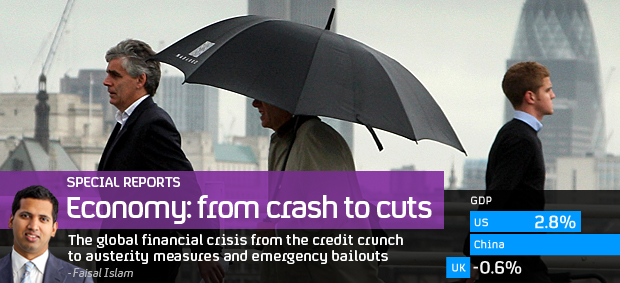The future for the British high street – bleak, or booming?
A bumper Boxing Day and up to 12 million shoppers on the streets on Tuesday – but economists are still warning of gloom for the British economy in 2012.

On the face of it, Britain seems to be booming. Between 11 and 12 million Britons – that’s a quarter of everyone aged ten and over – will go shopping on Tuesday. After Boxing Day’s sales shopping bonanza, when retailers took a record £2bn at the tills, Tuesday looks set to be even busier, and even more lucrative.
But it doesn’t mean the steady decline of the high street has been thrust into reverse. Takings might be up this week, but that’s because most retailers have been forced into massive discounts, slashing up to 75 per cent off prices. And that, experts say, is killing profit margins and is likely to trigger more high street failures next year.
Two reports out today predict more gloom for the British economy: a relentlessly uncheery New Year’s message from the left wing think tank IPPR hails a “bleak” 12 months ahead.
Going into 2012, the risk is that talk of austerity at home and crisis in Europe will dampen spirits to such an extent that the economy drifts into recession. Tony Dolphin, IPPR
Economist Tony Dolphin warned: “Going into 2012, the risk is that talk of austerity at home and crisis in Europe will dampen spirits to such an extent that the economy drifts into recession.”
And there’s more bad news from the Resolution Foundation, which has warned that the cuts in tax credits will hit hardest next year, affecting low to middle income families the most.
“With these households currently spending every penny they earn, this money will come straight out of tills on the high street,” the report said.
What’s the answer?
So what’s the answer? Luring shoppers back onto the high street, and not just for knock down bargains, would be a start. One answer, promoted by the government’s retail advisor Mary Portas, is to revive the traditional street market, with a national day to celebrate street trading and encourage more people into town centres.
Read more from Channel 4 News: The brands gone bad in 2011
According to her report, published earlier this month: “On a market stall people can try out their ideas and get their business booming without too much cost. It’s great for our town centres too, bringing in fresh ideas and products, and preserving our nation’s cultural heritage.”
It’s not just about shifting a few pounds of apples. In fact markets already generate more than s£7.5bn for the UK economy, and involve some 45,000 small businesses.
Philip Lowery, from the Real Food Festival, which now runs a weekly speciality food market on London’s Southbank, told Channel 4 News that stalls offer a low risk, highly flexible option for small producers who don’t have huge reserves of cash.
“It lets them get their products onto the high street, and gives them a shop front at what’s effectively a fraction of the cost,” he said.
It will clearly take more than a few new street markets to regenerate the British economy: post Christmas spending spree notwithstanding, most families won’t have much spare cash over the next 12 months and beyond.
Welcome to 2012, the year of austerity. The great British high street is crying out for help.
